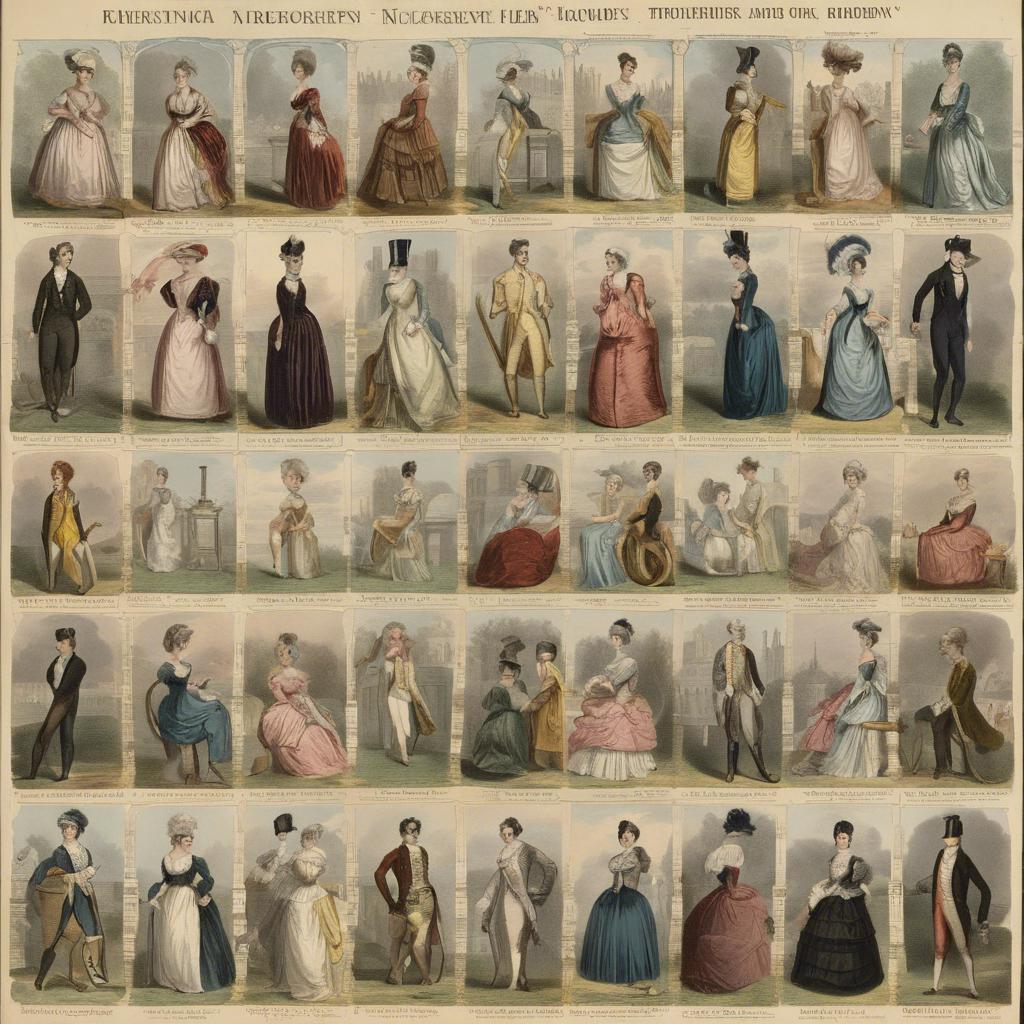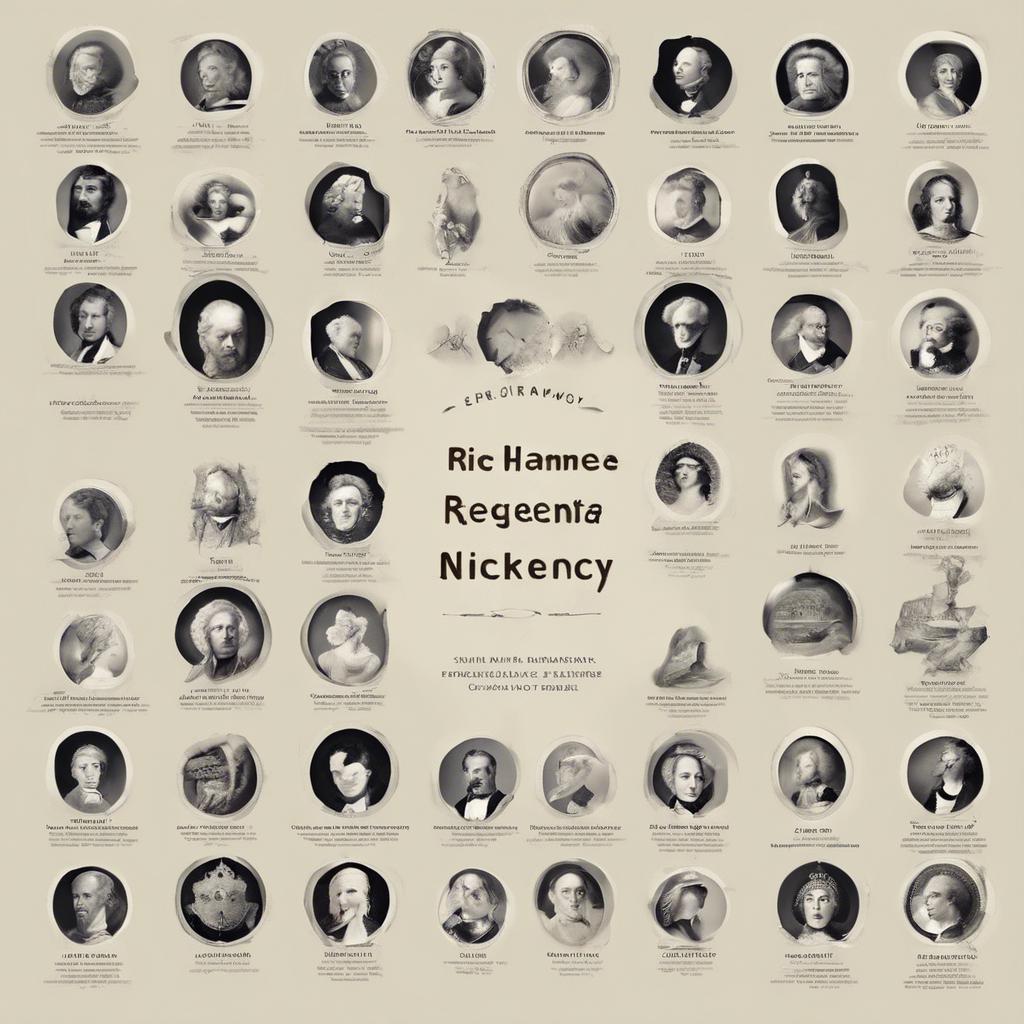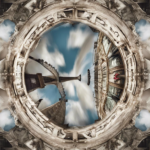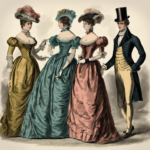During the Regency era in 19th century England, a time characterized by elegance, refinement, and societal hierarchy, individuals often used an array of colorful and witty nicknames to convey status, familiarity, and even scorn. These monikers, ranging from endearing to cutting, offer a fascinating glimpse into the intricate social dynamics of the era. Join us as we explore the world of Regency era nicknames and uncover the hidden meanings behind these clever epithets.
Step Into the World of Cheryl Bolen
Dive into the enchanting stories of love, intrigue, and elegance set in the Regency Era. Cheryl Bolen's novels offer timeless romance and captivating tales that will leave you wanting more.
Explore Cheryl Bolen's Books Now
Regency Era Nicknames: A Reflection of Social Status and Hierarchy
In the Regency Era, nicknames played a crucial role in reflecting social status and hierarchy within the aristocratic circles of British society. These nicknames were often used as a subtle way to indicate one’s standing and relationships with others, as well as to convey certain traits or characteristics.
Members of the upper class were often given nicknames that highlighted their familial connections or titles, such as “Lady Birdie” for a young noblewoman, or “The Duke” for a prominent member of the peerage. These titles were not only used as signs of respect, but also served to distinguish individuals within their social circles.
On the other hand, those of lower social status were often assigned nicknames that were more derogatory or mocking in nature, such as “The Scullery Maid” or “The Kitchen Boy.” These nicknames were used to reinforce the hierarchical structure of society and to remind individuals of their place in the social pecking order.
Exploring the Use of Nicknames in Regency England
In Regency England, the use of nicknames was a popular form of endearment and camaraderie among the upper class society. These playful monikers often reflected both the personality of the individual and their social standing within the intricate web of relationships that defined the era.
Common Nicknames in Regency England:
- “Dash”: A popular nickname given to dashing gentlemen known for their charm and wit.
- “Birdie”: A term of endearment for young, lively debutantes who flit from one social gathering to another with grace and style.
- “Bertie”: A casual and affectionate abbreviation for young men named Robert or Bertram, evoking a sense of youthful exuberance and camaraderie among friends.
Social Significance of Nicknames:
Nicknames served as a way to establish intimacy and affection within social circles, allowing individuals to express familiarity and closeness without breaching the boundaries of propriety. The use of playful monikers also added a layer of intrigue and mystery to social interactions, creating a sense of exclusivity among those in the know.
| Nickname | Meaning |
|---|---|
| Lady Lark | Given to the most charming and vivacious ladies of the ton. |
| Sir Snug | Reserved for gentlemen known for their warmth and reliability. |
| The Belle | A nickname for the most beautiful and admired debutantes of the season. |
The Art of Choosing a Proper Regency Era Nickname
When it comes to selecting a suitable Regency Era nickname, it is essential to consider the key elements that will make your chosen moniker both authentic and fitting for the time period. To begin, take inspiration from the popular names of the era, such as Elizabeth, Charlotte, or William. These classic choices can serve as a foundation for crafting a nickname that evokes the elegance and sophistication of Regency society.
Additionally, consider incorporating elements of your personality or interests into your nickname. For example, if you are known for your love of music, you could select a nickname like “Melody” or “Harmonia.” This personal touch will make your chosen nickname uniquely yours and add depth to your persona in Regency social circles.
pay attention to the significance of symbolism in Regency Era culture. Certain names or symbols were believed to convey specific attributes or qualities, so selecting a nickname with a hidden meaning can add intrigue and mystery to your persona. For example, the nickname “Grace” could symbolize elegance and poise, while “Valor” could represent courage and strength.
The Influence of Regency Era Nicknames on Literature and Society
During the Regency Era, nicknames played a significant role in both literature and society, reflecting the social norms and values of the time. These playful monikers added depth and character to the individuals they were assigned to, often revealing insights into their personalities or relationships. In literature, authors used nicknames to imbue their characters with distinct qualities, helping to shape the narrative and create memorable figures that still resonate with readers today.
In society, Regency Era nicknames were commonly used as a form of endearment or affection among friends and family members. These charming sobriquets helped foster closer bonds between individuals, providing a sense of familiarity and intimacy within social circles. Additionally, nicknames were often indicative of one’s social status or lineage, serving as a form of identification within the hierarchical structure of Regency society.
The influence of Regency Era nicknames extended beyond personal relationships, permeating various aspects of society such as art, fashion, and politics. Nicknames were often used in political satire and caricatures, highlighting the quirks and foibles of prominent figures in a lighthearted manner. Furthermore, these playful monikers found their way into popular culture, shaping the language and discourse of the time. Regency Era nicknames added a touch of whimsy and charm to literature and society, leaving a lasting impact on the cultural landscape of the period.
Key Takeaways
the regency era was a time of elaborate and charming nicknames that reflected the social norms and customs of the time. From endearing terms of affection to witty monikers based on personal characteristics, these nicknames added a unique charm to social interactions during this period. As we look back on these historical nicknames, we are reminded of the intricate layers of etiquette and societal expectations that defined the regency era. The use of these names served not only as a form of address, but also as a subtle display of one’s social standing and relationships within the intricate web of regency society. Let us continue to explore the rich tapestry of history through the fascinating world of regency era nicknames.


